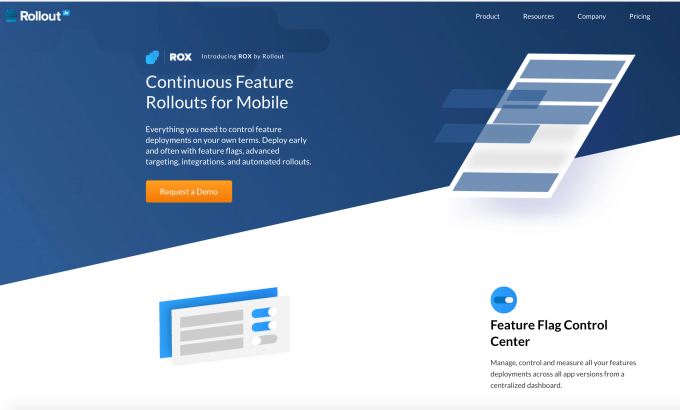Last Updated on April 28, 2017 by Larious

Rollout.io, a company that had developed technology that allowed mobile app developers to update their apps without having to go through the App Store approval process, is now entering a new business after Apple cracked down on apps using its software. Today, the former TechCrunch Disrupt Battlefield finalist has transitioned to a new product that allows developers to selectively roll out new features in their apps to subsets of users before deploying them the wider user base.
Rollout.io’s original product was well-received, as it solved a problem that many app developers’ face – the need to quickly patch a bug or address a critical security hole in a timely fashion. The App Store approval process can slow down getting those sorts of changes released to all users, and then it still relies on users updating the apps on their mobile device in order to see them applied.
Rollout.io’s original solution, on the other hand, could actually “hot patch” applications on the fly, thanks to developer tools (the Rollout SDK) where it packaged pre-defined solutions, like those that could disable functions that were causing crashes, for example. Developers could also inject JavaScript code to fix more complex problems.
But Apple wasn’t having it. In March, Apple began alerting developers that they would have to remove Rollout.io’s code because it was not in compliance with its guidelines for developers. For Apple, the decision was likely about being able to control its ecosystem, in addition to the possible security concerns that accompany being able to change apps without approval.
At the time, 2,000 app developers had installed the SDK, which was running on 80 million devices.
According to Rollout.io co-founder and CEO Erez Rusovsky, the company’s new product – called Rox by Rollout – was already in development before Apple made its decision. But now instead of being a secondary offering, it’s the main one.

In fact, Rusovsky says the development of Rox was influenced by feedback from its existing customer base, who had manipulated the hot patching solution to deploy new features safer and faster.
The idea of selectively rolling out features to a portion of an app’s users is something larger companies like Facebook and Twitter do all the time. Often, these are staged rollouts that give the company time to fix issues before a wider release, though other times they are more like A/B tests where the company can see how the subset of the user base responds to a new feature.
With Rox, mobile app developers have a similar option.
“Rox uses continuous feature deployment, which does not inject new code, but rather turns on/off existing code,” explains Rusovsky. “Rox not only solves the production bugs issue, but addresses the entire software deployment cycle including development, internal testing, QA, user acceptance testing, and full rollouts,” he says.
Because it doesn’t allow developers to change their apps on the fly – the code it selectively enables is already there to be scrutinized during the app review process – Apple should permit the solution to continue.
However, Rox stops short of being a full A/B testing platform. Instead, Rox lets mobile developers control over the deployment of new features from a centralized dashboard. From here, developers can target their rollouts to specific groups of users or devices, and can either manually control or automate deployment by allowing the system to determine when it’s safe to push the new feature out to everyone.
While Rox could help developers build the infrastructure needed for A/B testing, it doesn’t provide the analytics that accompanies that sort of solution. However, it does integrate with existing development tools and workflows, the company says.
The pricing for the new solution starts at $500 per month, but discounts for startups are available. Rox is currently iOS-only, but Android support is pending.

